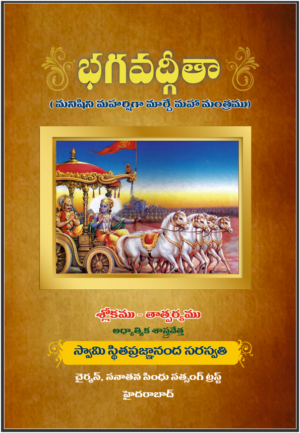Introduction to Rudram
The Rudrapraśna, often identified with the Rudram, is a vital component of Hindu liturgical worship, particularly within the context of Shaivism. This ancient text consists of a series of mantras that invoke Rudra, a form of Shiva, known for his duality as both a destroyer and a benevolent force. It holds a prominent place in the Yajurveda, signifying its root in Vedic tradition. The significance of the Rudrapraśna extends well beyond its practical applications in rituals; it symbolizes the intricate connection between the spiritual and material worlds.
In the realm of Hindu tradition, the Rudra is revered not just as a deity but as a manifestation of cosmic energy. The Rudrapraśna encapsulates the essence of the Karma Kanda, the portion of the Vedas that deals with rituals and prescribed actions. Through these mantras, practitioners aim to harness the divine energies of Rudra for the fulfillment of their physical and spiritual desires. Its repetitive recitation is believed to impart peace, prosperity, and protection, reinforcing its indispensable role in temple worship and personal rituals.
However, it is noteworthy that the Rudram is often recited with little understanding of its profound meanings. Many devotees chant these mantras primarily as a form of devotion or ritualistic obligation without delving into the deeper philosophical implications embedded within the text. This practice, while beneficial on a superficial level, may overlook the rich layers of Vedantic interpretations waiting to be explored. As we delve deeper into the Rudram, it becomes crucial to contemplate its implications, making the text not only a source of ritualistic power but also a foundation for spiritual inquiry and personal growth.
Understanding Vedantic Thought in the Rudram
Vedantic thought, a crucial component of Hindu philosophy, finds a profound expression in the Rudram, a significant text in the Yajur Veda. The mantras of the Rudram emphasize the principle of oneness, a concept central to Advaita Vedanta, which advocates that the individual self (Atman) and the ultimate reality (Brahman) are fundamentally identical. This realization of oneness is pivotal in fostering a deeper understanding of existence and consciousness, transcending the apparent duality presented in the material world.
A closer examination of the Rudram reveals that it is not merely a series of hymns and invocations but a profound philosophical discourse imbued with Vedantic wisdom. The text encourages practitioners to meditate on the omnipresent nature of the divine, urging them to look beyond the confines of dogma and rigid beliefs. This aligns with the teachings of Swami Tattvavidananda, who inspired many to explore the essence of spirituality in a modern context. His perspective reiterates that true understanding comes from recognizing the interconnectedness of all beings and the underlying unity that pervades the universe.
The underlying message of the Rudram is not limited to rituals or external worship; instead, it serves as a platform for introspection and self-realization. The invocation of deities in the Rudram can be understood as metaphors for the qualities of the supreme consciousness, facilitating a connection with the divine that resides within every individual. This understanding invites followers to engage with the text not just as a religious scripture, but as a philosophical guide that fosters a sense of unity with the cosmos, encouraging a harmonious coexistence with all life forms.
Through this lens, the Rudram becomes a timeless exploration of Vedantic thought, inviting readers to reflect on their own spiritual journeys while embracing the eternal truth of oneness, a core tenet of Advaita philosophy.
The Role of Swami Tattvavidananda
Swami Tattvavidananda Saraswati stands as a significant figure in the modern interpretation of Vedanta, bridging the gap between traditional Vedic teachings and contemporary understanding. His journey from a rigorous scientific background to a profound philosophical outlook underscores a unique commitment to the pursuit of truth. Initially, he embarked on a path in the sciences, excelling particularly in chemistry, where he developed a keen analytical mindset. However, as he associated with Vedic texts and concepts, he found a deeper calling.
His academic journey took a transformative turn when he began to explore the vast landscapes of Sanskrit and Hindu philosophy. Swami Tattvavidananda was profoundly influenced by the teachings of Swami Dayananda Saraswati, a prominent figure in the revival of Vedic studies in the modern era. Under the guidance of such an esteemed teacher, he immersed himself in the study of Vedanta, rigorously analyzing the texts and engaging with their philosophical implications. This immersion not only solidified his understanding but also ignited a passion to disseminate this knowledge more broadly.
Swami Tattvavidananda’s contributions to Advaita philosophy are exemplified through his lectures, writings, and teachings. His literary works encapsulate complex ideas in a comprehensible manner, making them accessible to a broader audience. He emphasized the importance of self-inquiry and philosophical reasoning in the practice of Vedanta. His approach to teaching was characterized by clarity and pragmatism, allowing students from various backgrounds to appreciate the essence of this ancient wisdom.
In summary, Swami Tattvavidananda Saraswati exemplifies the harmonious integration of modern scientific thought with the timeless principles of Vedanta. Through his dedication and insights, he continues to inspire countless individuals to explore and engage with these philosophical traditions, ensuring their relevance in today’s context.
A New Perspective on the Rudram: Commentary and Interpretation
Swami Tattvavidananda’s interpretation of the Rudrapraśna provides a distinctive lens through which to explore this ancient text, diverging from the conventional commentaries offered by traditional scholars such as Sri Sayana and Sri Bhatta Bhaskara. While Sayana’s commentary is known for its meticulous explanation of the verses and their implications in Vedic rituals, Bhaskara’s approach emphasizes philosophical underpinnings related to the concepts of divinity and the cosmos. Swamiji, however, ventures beyond these established readings, offering an interpretation that encourages readers to delve deeper into the metaphysical essence of the Rudram.
In his analysis, Swami Tattvavidananda seeks to bridge the gap between ancient wisdom and contemporary thought. He emphasizes the relevance of the Rudram in modern contexts, arguing that its verses are not merely relics of a bygone era but are rich with insights that can inform present-day spiritual practices and philosophical inquiries. By highlighting the significance of each syllable and the emotional depth embedded within them, Swamiji reveals layers of meaning that resonate with seekers and scholars alike.
This fresh perspective reveals the interconnection between the divine attributes and human experience, emphasizing how the Rudram encapsulates timeless principles that guide individuals on their spiritual journeys. Rather than limiting the interpretation to ritualistic or theistic frameworks, Swamiji encourages a holistic understanding that encompasses personal transformation and universal consciousness. This approach elucidates the Rudram’s role as a vital tool for self-realization and spiritual development, steering the discourse toward an exploration of consciousness and the essence of being.
Ultimately, Swami Tattvavidananda’s independent scholarship contributes to a more profound vision of the Rudram, enriching modern discourse and inviting a reevaluation of traditional interpretations. Through his comprehensive commentary, he opens a dialogue that invites both novices and seasoned practitioners to engage with the text in a meaningful way, fostering a lively exploration of its relevance within the fabric of contemporary spiritual thought.
Conclusion: The Essence of Self-Knowledge and Oneness
Throughout this exploration of the Rudram and its relevance to contemporary thought, the underlying themes of self-knowledge and interconnection emerge as paramount. The teachings imparted within the verses of the Rudram underscore the significance of understanding one’s true self, which is not just an individual identity but a larger, interconnected existence. Swami Tattvavidananda’s insights emphasize that through the pursuit of self-knowledge, we can transcend our apparent separateness and recognize our inherent unity with the divine and with everything around us.
The notions presented in the Rudram reflect the essence of Vedantic philosophy, where the realization of one’s own nature as part of a greater cosmic whole fosters a deep sense of peace and harmony. This perspective encourages individuals to see the divine presence in all aspects of life, promoting a more compassionate and mindful approach to existence. Engaging with the Rudram thus becomes a pathway to introspection, inviting practitioners to delve deeper into the truths of their own nature.
Furthermore, the teachings advocate for the recognition of the omnipresence of the divine, which can serve as a powerful motivator for spiritual practice. By internalizing these concepts, individuals are not only equipped to enhance their personal spiritual journeys but also to contribute positively to the collective consciousness of society. The themes of unity and divine omnipresence remind us that each act of kindness and compassion contributes to a larger tapestry of existence.
In conclusion, the teachings of the Rudram encourage a meaningful engagement that transcends mere ritualistic understanding. By reflecting on the broader implications of Vedantic thought, we are motivated to cultivate self-knowledge and foster a vision of unity, leading to a profound impact on our spiritual practices and interactions with the world around us.



Reviews
There are no reviews yet.